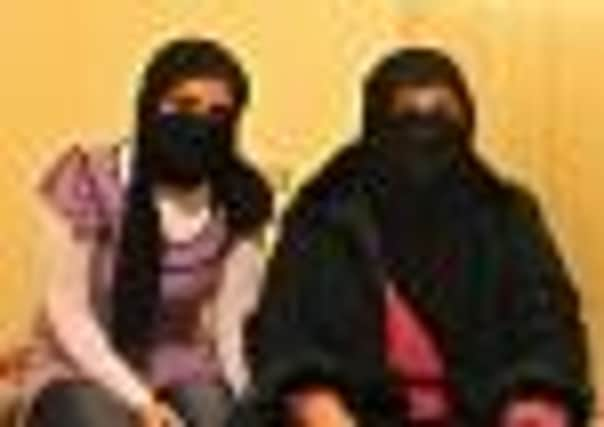When Syria’s women took up war cry against Assad


The crowds of husbands, sons and nephews crammed the central square, testing their new found defiance. Government tanks and soldiers moved into the city, snipers trained on the protesters.
In conservative Talkalakh, sending up the war cry against the regime was deemed business for men. Women waited in their homes, peeking at the revolution through lace curtains.
Advertisement
Hide AdAdvertisement
Hide AdAll except for Um Saayd, 55. A short, solid woman, paunchy with age, she pushed through the crowds with her three veiled daughters in tow, marched up the steps to a central stage, grabbed the microphone and led the battle cry.
“Down with President Bashar al-Assad, cut off his head, we need to be free!!” she shouted to the stunned audience. “Syrians across the country, why do you do nothing? Why do you wait? Can you not see he is killing us?”
Since that day in early March, residents of Talkalakh have called Um Saayd the mother of the women’s revolution. With public speeches, in private homes, at the mosque and when taking her daughters to school she pushed the women of Talkalakh to join the fight.
“Don’t leave these men here protesting. Your role is to cook for them, to tend to their injuries, to wash their clothes, we cannot leave them. Join them. You will make your protests bigger if you come here too,” she recalled shouting on stage.
YouTube footage shows women creeping out onto the balconies of their homes, above the street protest to listen to her words. Gradually, over weeks, said Um Saayd, more and more joined the uprising, until the crowds were no longer a sea of male leather jackets.
At times the protests turned deadly. In one of the largest protests, demonstrators marched on the Talkalakh internal security building, a hated symbol of the regime. As they approached, said Um Saayd, lines of soldiers ahead of them lifted their guns, and began firing directly into the crowds. The dead and wounded lay bleeding on the road as the crowds scattered.
But Um Saayd said that in that moment she felt no fear. This was her life now, her chance to rebel against a regime from which her family had suffered.
“The first time I protested, my girls and I waited for my husband and sons to leave for the demonstration. Then we left the house. Shutting the door behind me I said, ‘enough, I don’t have this feeling of fear any more.’”
Advertisement
Hide AdAdvertisement
Hide AdTwo cousins arrested alive in the first days of the protests, were returned to the family dead in wooden boxes, their bodies horrifically mutilated.
Speaking from bare, temporary accommodation in Lebanon this weekend, tears came to Saayd’s eyes as she thought of how her family was forced to flee the country, leaving her son in prison.
“There was no food, no electricity, they were coming for us. It was not safe for my family to stay,” said Saayd. “But I fear for my son every second of every day, I pray to God he is ok.”